Criminal Law and Procedure on the Multistate Essay Exam: Highly Tested Topics and Tips
 Criminal Law and Procedure on the Multistate Essay Exam: Highly Tested Topics and Tips
Criminal Law and Procedure on the Multistate Essay Exam: Highly Tested Topics and Tips
Criminal Law and Procedure appears consistently on the MEE. However, it is tested less frequently than some other MEE subjects.
Here, we give you tips for approaching Criminal Law and Procedure on the MEE and we reveal some of the highly tested issues in Criminal Law and Procedure MEE questions.
Criminal Law and Procedure on the Multistate Essay Exam
1. First, be aware of how Criminal Law and Procedure is tested
Criminal Law and Criminal Procedure It is tested, on average, a little less than once per year.
Note that, in general, the MEE tests Criminal Law or Criminal Procedure. Although Criminal Law and Criminal Procedure have been combined before, usually, one subject or the other is tested on the MEE. Criminal Law and Criminal Procedure are tested with about the same frequency so, the chances of seeing a Criminal Law question are about as good as seeing a Criminal Procedure question.
Recently (July 2017 and July 2016), Criminal Procedure was combined with Evidence. In both cases, a Miranda issue was tested with hearsay.
2. Be aware of the highly tested Criminal Law and Procedure issues
The examiners tend to test several of the same issues in Criminal Law and Procedure MEE questions. You can maximize your score by being aware of these highly tested issues. (We have a nice summary of these in our MEE One-Sheets if you want to see all of them and have them all in one place.)
Some of the highly tested Criminal Law and Procedure Multistate Essay Exam issues include:
Homicide
In the area of Criminal Law, homicide is the most highly tested topic. Homicide is also very important to know for the MBE since three to four scored MBE questions will test homicide. The most important thing to understand about homicide is the distinctions between first-degree murder, second-degree murder, felony murder, voluntary manslaughter, and involuntary manslaughter. The chart below clarifies these distinctions for you.
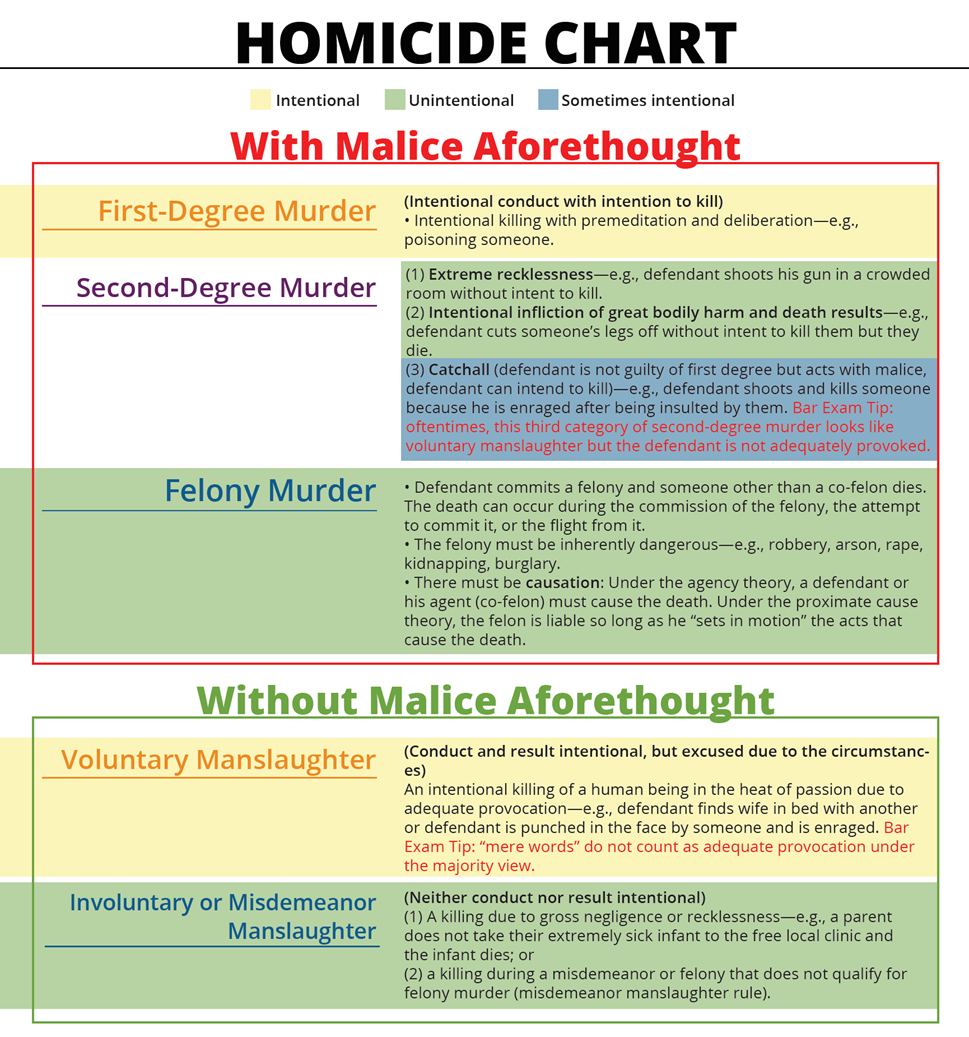
The issue of causation often is tested with homicide. Remember that the defendant’s actions must be the actual and proximate cause of the victim’s death. (Apply the same causation principles as when you study negligence in Torts.)
Defense of insanity
- Insanity: the most frequently tested insanity test on the MEE is the M’Naghten test.

The Fifth Amendment
The most highly tested topic, by far, in Criminal Law and Procedure MEE questions is the Fifth Amendment. Specifically, Miranda warnings are frequently tested. You should know:
- When are Miranda warnings needed? When there is a “custodial interrogation.”
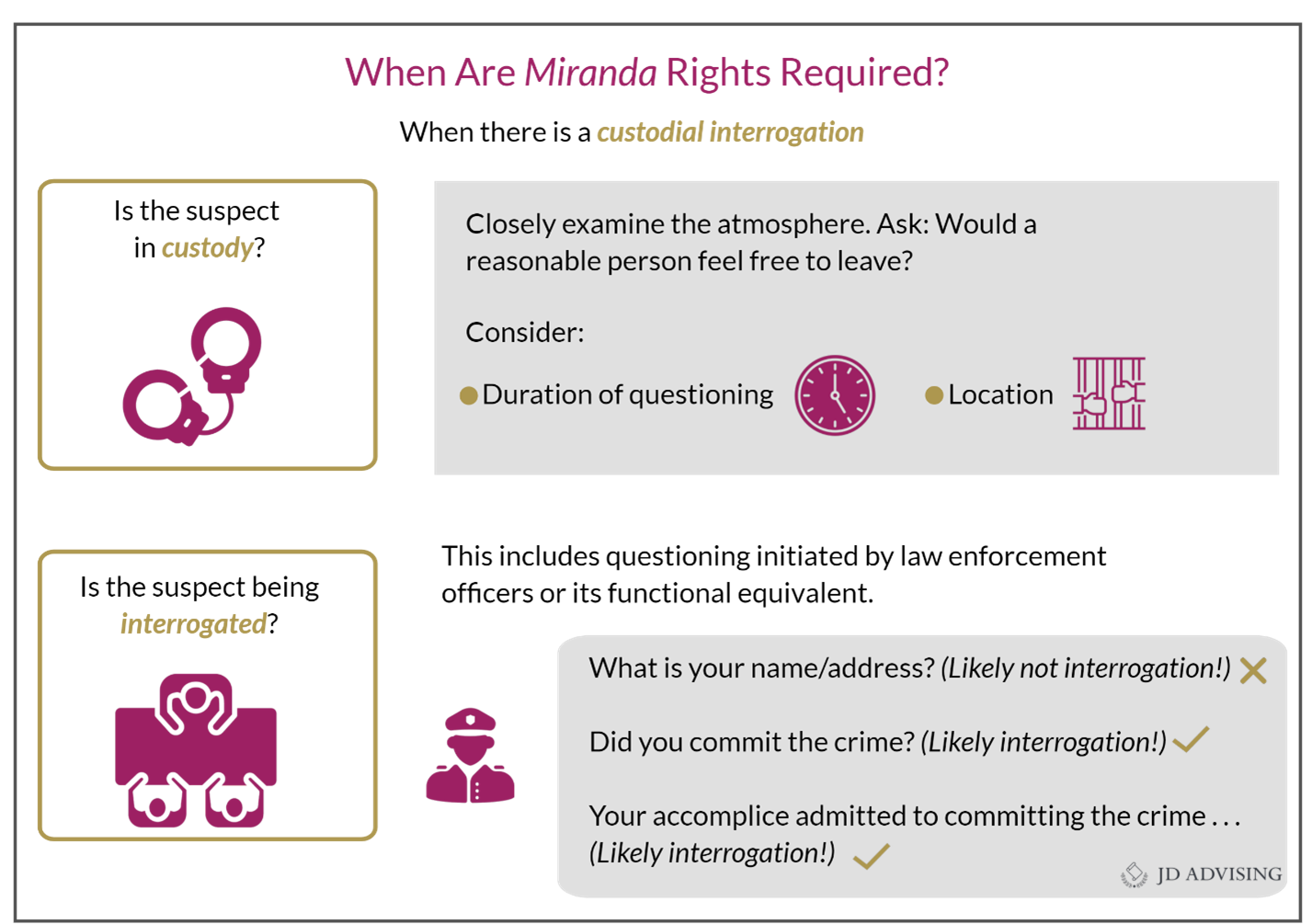
- How are Miranda rights waived? They are waived if the suspect makes a “knowing, intelligent, and voluntary” waiver.

- How are Miranda rights invoked? The suspect must be explicit, unambiguous, and unequivocal in invoking his rights. So, the suspect must say something like, “I want a lawyer” or “I am exercising my right to remain silent.” He cannot merely say, “I think I want a lawyer” or remain silent when asked questions.

- What happens if a Miranda violation occurs? The statements are excluded from the prosecutor’s case-in-chief. However, any “physical fruits” can be admitted against the defendant if the defendant made the statements voluntarily. Students often confuse these issues. As an example, a defendant was not properly given Miranda warnings despite being in custody and being interrogated. The defendant confessed to murdering a victim and stated, “The weapon is in the cellar of my uncle’s basement.” The prosecutors thereafter recover the weapon. The defendant’s statements could not be admitted against him in the prosecutor’s case-in-chief. However, the “physical fruits”—in this case, the weapon—could be (assuming the defendant made his statements voluntarily).
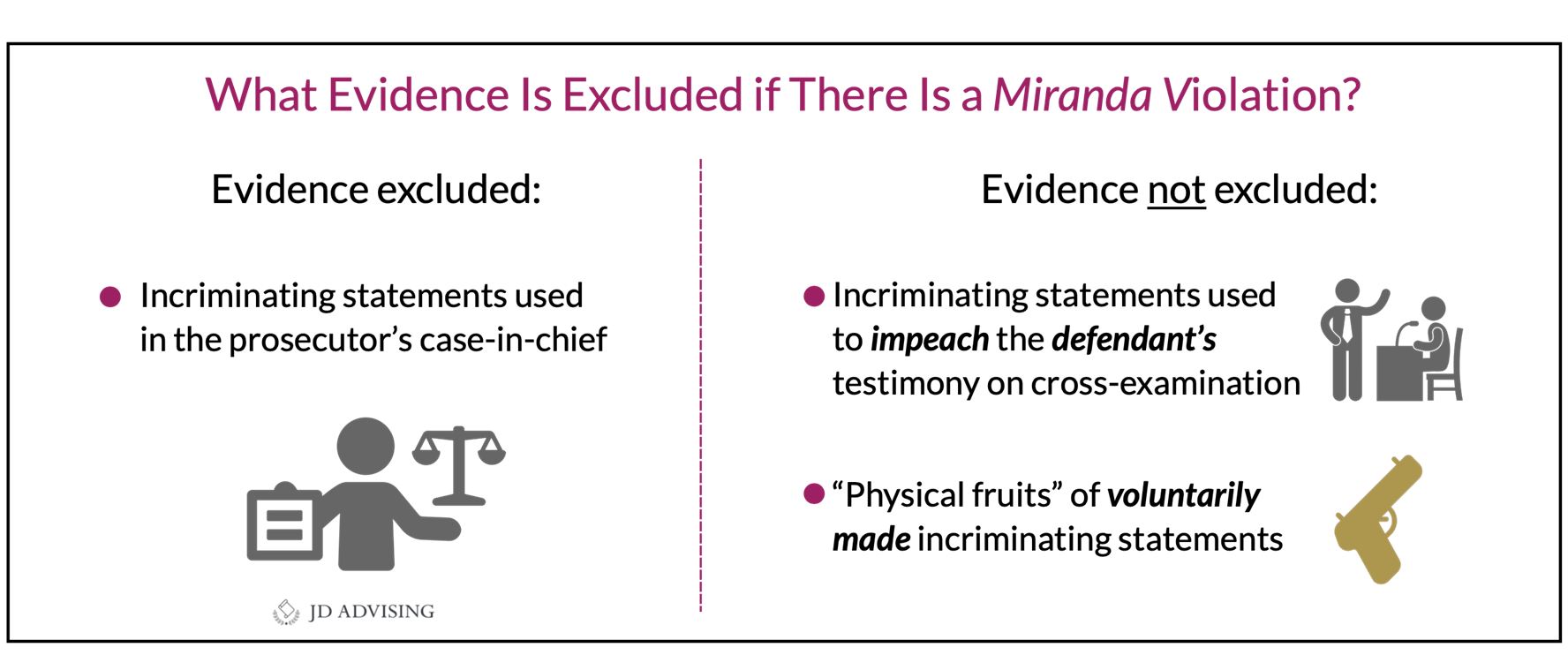
The Fourteenth Amendment and Sixth Amendment have also appeared on Criminal Procedure MEE questions. However, the Fifth Amendment is the examiners’ favorite issue to test.
Also, take the time to memorize the key vocabulary above (e.g., “custodial interrogation,” “knowing, intelligent, and voluntary” waiver). These are terms that the graders will be looking for as they scan your essay. Including these terms makes it easier for the grader to award you points!
The Fourth Amendment
The Fourth Amendment prohibition against unreasonable searches and seizures has also appeared frequently on Criminal Procedure MEE questions. We recommend you review:
- When the Fourth Amendment applies: the Fourth Amendment applies when there is a search or seizure by a government agent when the person has a reasonable expectation of privacy.
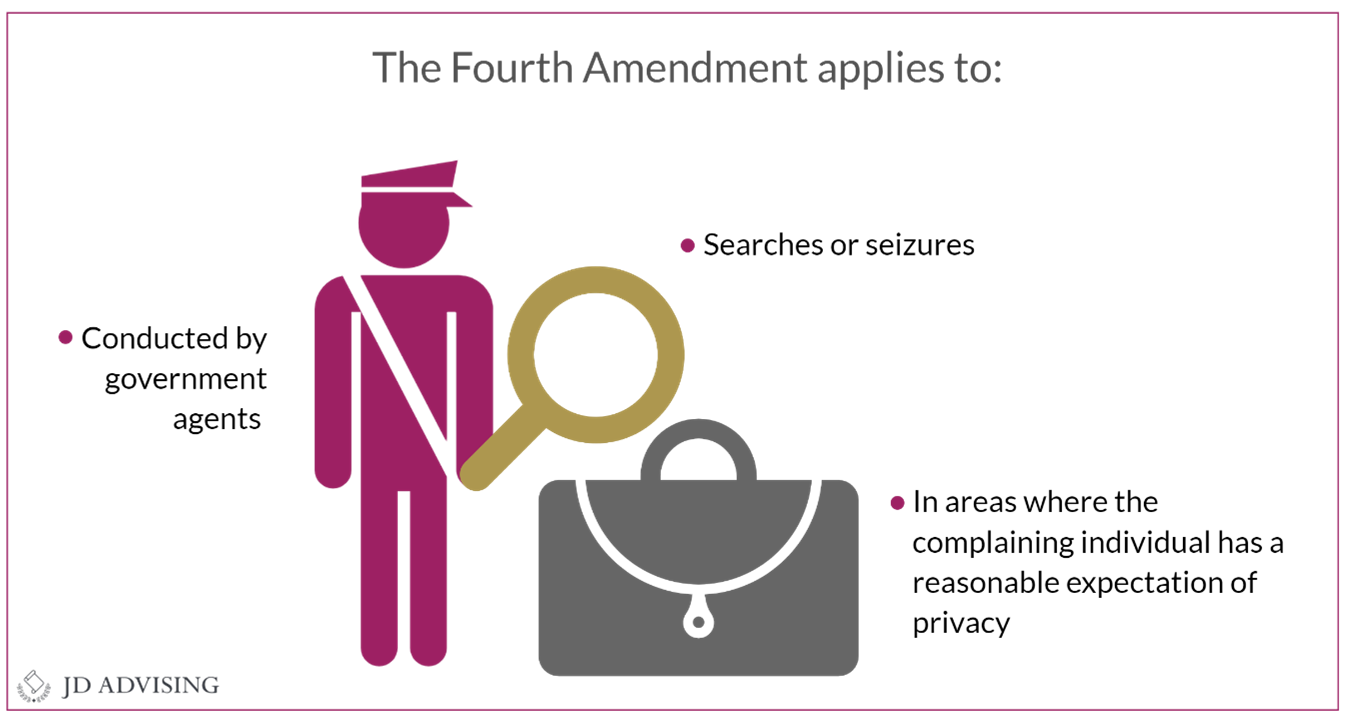
- Valid warrant requirements: a warrant is valid if it is issued by an unbiased magistrate and is supported by probable cause and particularity.
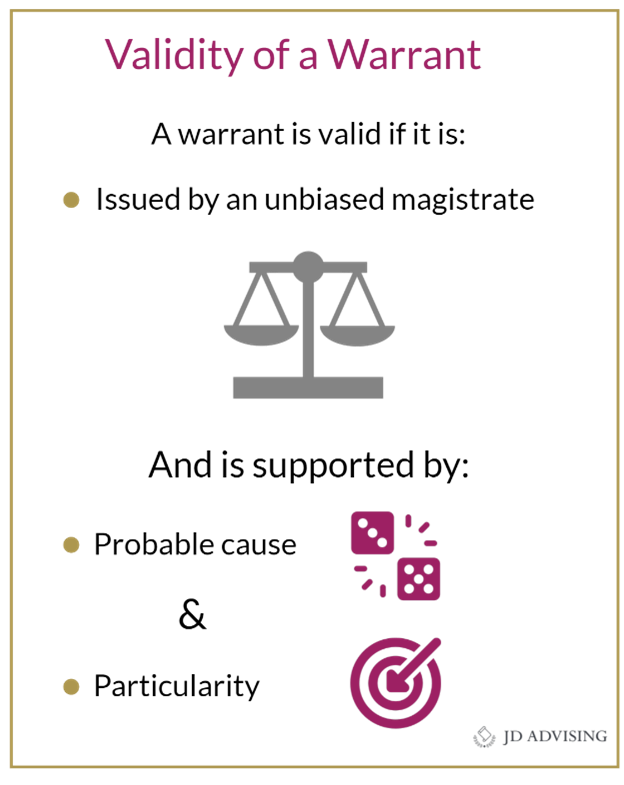
- Valid warrant exceptions: consent, plain view, exigent circumstances (“hot pursuit,” emergency, risk of evidence disappearing).
3. Learn basic definitions to introduce each topic
There are some definitions that the grader will expect to see for certain topics. For example:
- Malice aforethought in murder: “Malice aforethought” is a term of art that encompasses different mental states. In most jurisdictions, the malice aforethought requirement is satisfied if the defendant acted with intent to kill, with the knowledge that his acts would kill, with intent to inflict great bodily harm, or with reckless disregard of an extreme risk to human life (a depraved heart).
- Miranda warnings: Law enforcement officers are required to read Miranda warnings to a suspect when the suspect is subjected to a custodial interrogation. If the officers were required to read the warnings and failed to do so, the suspect’s statements should be suppressed.

- Interrogation: Any words or actions on the part of the police that the police should know are reasonably likely to elicit an incriminating response from the suspect.
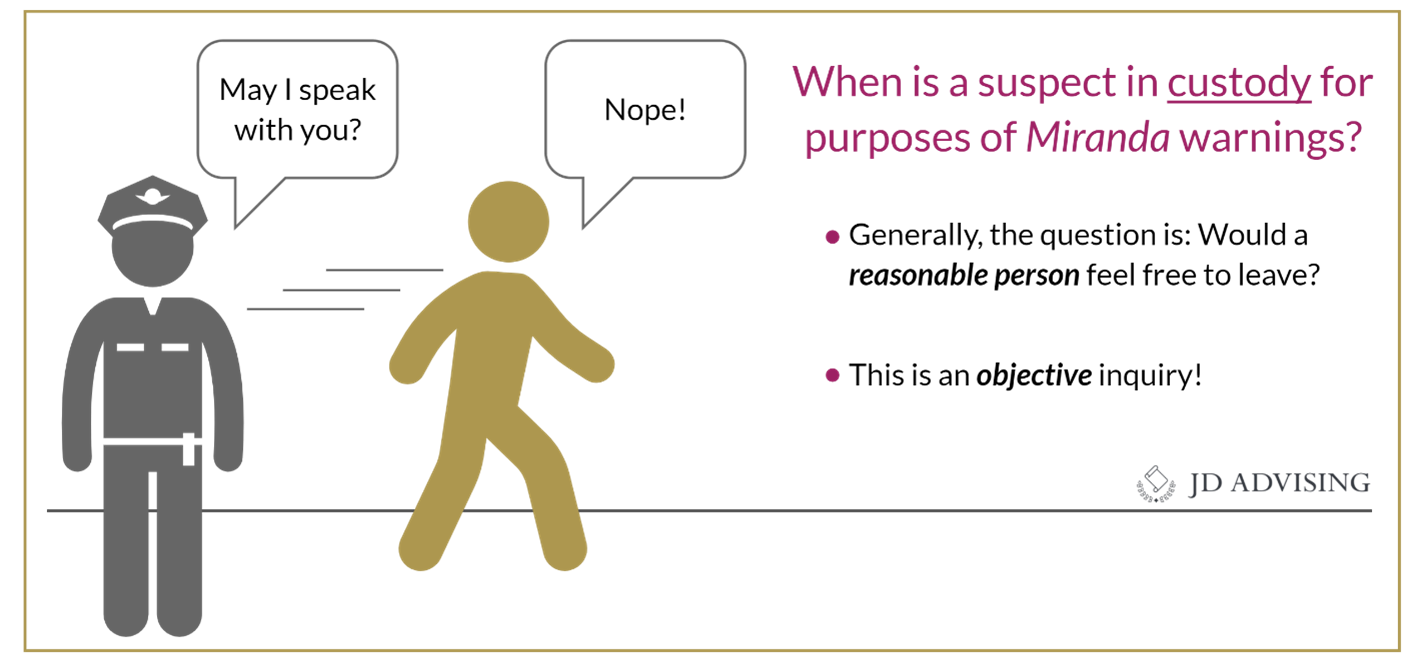
- Custody: A substantial seizure that is defined as either a formal arrest or a restraint on freedom of movement of the degree associated with a formal arrest.

Being able to define key concepts will go a long way to build credibility with the grader. This will also help you accurately apply the law and reach a conclusion.
Some students—especially those that did not take Criminal Law or Criminal Procedure in law school—find it helpful to make a separate page of vocabulary terms or key words to use in an MEE answer. We recommend you try that if you struggle with Criminal Law and Procedure vocabulary.
4. Practice!
Practice is critical if you want to master Criminal Law and Procedure on the MEE. As an added bonus, you will probably also see your Criminal Law MBE score improve since Criminal Law is tested on both the MEE and MBE.
Here, we have provided you with some links to free Criminal Law and Procedure questions and NCBE point sheets. (If you would like to purchase a book of Criminal Law and Procedure MEE questions and NCBE point sheets from 2005 to the most recent administration available, check out our MEE books here. You can also see some additional exams on the NCBE website for free here.)
- February 2023 Criminal Procedure MEE: this MEE covers proper execution of a search warrant; knock-and-announce rule; plain-view doctrine; Terry search scope; exclusionary rule scope; and particularity of a warrant.
- July 2016 Criminal Procedure MEE (combined with Evidence): this MEE covers Fifth Amendment Miranda warnings.
- July 2015 Criminal Law MEE: this MEE covers insanity as a defense and homicide.
- July 2009 Criminal Law and Criminal Procedure MEE: this MEE covers the Fourth Amendment and attempt.
- Go to the next topic, Evidence.
Seeking MEE Expertise?
🌟 Freebies & Discounts
- Free Bar Exam Resource Center: Explore for leading guides, articles, and webinars.
- Expert-Crafted Bar Exam Guides: Unveil insights on high-frequency MEE topics and strategies for success.
- Free Webinars: Engage with top bar exam experts.
🔥 Top-Rated MEE Resources
- MEE One-Sheets: Boost your confidence with our most popular bar exam product!
- Bar Exam Outlines: Our comprehensive and condensed bar exam outlines present key information in an organized, easy-to-digest layout.
- NEW MEE Mastery Class: Unearth focused, engaging reviews of essential MEE topics.
- Bar Exam Crash Course and Mini Outlines: Opt for a swift, comprehensive refresher.
- MEE Private Tutoring and feedback: Elevate your approach with tailored success strategies.
- MEE Course: Preview our acclaimed five-star program for unmatched instruction, outlines, and questions.
🔥 NEW! Dive deep into our Repeat Taker Bar Exam Course and discover our unrivaled Platinum Guarantee Pass Program.


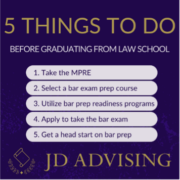

Leave a Reply
Want to join the discussion?Feel free to contribute!